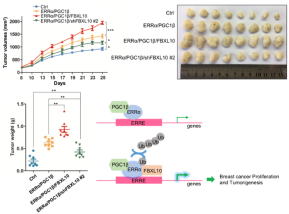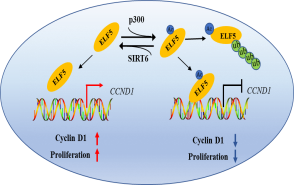
From School of Bioengineering
By Li Xiang, Li Shujing
Malignant tumor is a serious disease that endangers human life and health, and is one of the main prevention and cure diseases of the World Health Organization, as well as a difficult research problem in the field of life and health sciences. Recently, Liaoning Provincial Key Laboratory of Protein Modification & Disease, School of Bioengineering of Dalian University of Technology (DUT), has continuously made new progress in the research of protein chemical modification and the occurrence and progression of breast cancer.

Proteins are functional molecules that perform life activities and are essential for the maintenance of normal vital metabolic activities in the body. The chemical modification of proteins is a “molecular switch” that regulates the function of proteins, and its abnormal regulation is closely related to the occurrence and development of major diseases, including breast cancer. Prof. Wu Huijian’s team has isolated and identified important proteins that are closely related to the development and progression of breast cancer, based on molecular biology of tumor, combined with medical-industrial crossover technology, and found that the functions and stability of these important proteins are regulated by a network of chemical modifications such as acetylation, ubiquitination and SUMOylation. The study is important to elaborate the mechanism of breast cancer occurrence and development, and provide new ideas for the prevention and treatment of breast cancer.

Figure 1 FBXL10 can cooperate with ERRα to promote the proliferation of breast cancer cells

Figure 2 The regulation of the proliferation of breast cancer by the acetylation of ELF5
The research work entitled Acetylation of ELF5 suppresses breast cancer progression by promoting its degradation and targeting CCND1 was published in npj Precision Oncology, and delivered on Cancer Letters as FBXL10 promotes ERRαprotein stability and proliferation of breast cancer cells by enhancing the mono-ubiquitylation of ERRα.
This study was mainly carried out by Dr. Li Xiahui, Dr. Yang Yangyang and Dr. Li Shujing from School of Bioengineering, and the corresponding author is Prof. Wu Huijian. It was supported by the National Natural Science Foundation of China and the Dalian University of Technology “Medical-Industrial Interdisciplinary Research Fund”.
Links to the papers:
Editor: Li Xiang